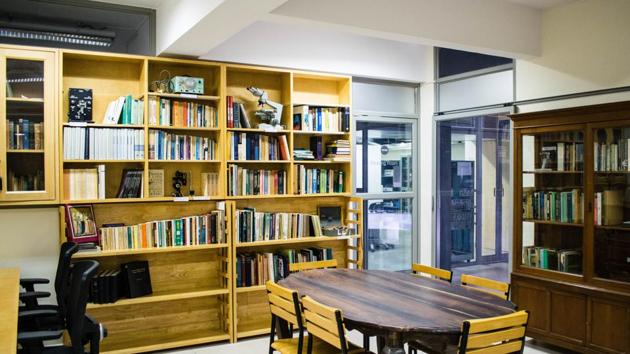NCBS opens first of its kind archive in Bangalore
NCBS has set up an archive that will be open to the public and focus on the institute and the biological sciences’ rich legacy in India.
In a move that will probably make the National Centre for Biological Sciences (NCBS) founder Obaid Siddiqi elated, the institute has set up an archive for contemporary biology in India in the space that used to be his old lab.

Spread out across a 1,500 square-feet area in the NCBS campus, the state-of-the-art archive is home to 18 collections with nearly 50,000 objects and countless manuscripts and field notes from various eminent scientists through the ages.
“The idea of the archive has been a passion project for us here at NCBS,” Dr Mukund Thattai, head of academic activities at NCBS, said.
“The archive, in a sense, expresses confidence that we have a certain way of doing science and the historical record is there. By having a resource like this on campus, science students who may have never been exposed to archival work will get a first-hand opportunity to do so,” he said.
Led by Venkat Srinivasan, who has previously worked at the Stanford Linear Accelerator Centre in the US, the archive was set up by a team of 40 students over the course of three years.
“In science, the research paper that is published is only the tip of the iceberg. I’d like to think the archive reveals the rest of iceberg,” Srinivasan said.
“We are also constantly adding material to the archives as well as improving the descriptors of the archived material. This way, a science student or science enthusiast can look for certain keywords and find a variety of results showing up,” he said.
Apart from holding letters from some of India’s well-known scientists such as Homi Bhabha and Siddiqi, the archive is home also to rare decades-old scientific instruments. The oldest material in the archive is an early edition of Charles Darwin’s The Descent of Man and Selection in Relation to Sex published in 1901.
The entire catalogue, as well as many of the material available in the archive, has been digitised and uploaded online onto the NCBS website.
Officials at NCBS also hope to collaborate with other eminent scientific institutions in Bengaluru and elsewhere to add to their archive’s repository.
“We hope this archive acts as a bridge between the scientific community and historians of science as well as the general public. The points of interactions between these groups are ever-reducing and we hope this develops into such a space,” Srinivasan said.






